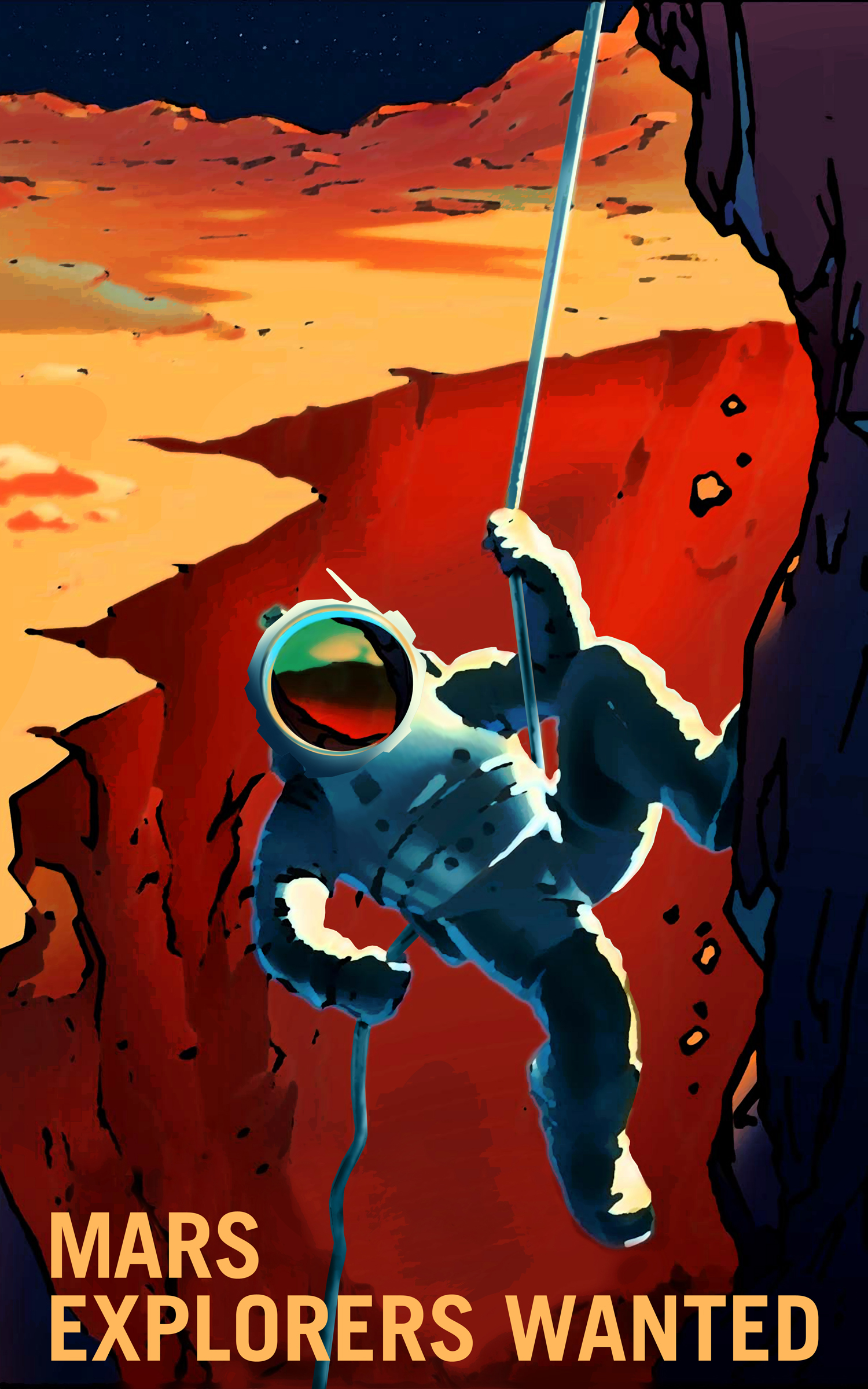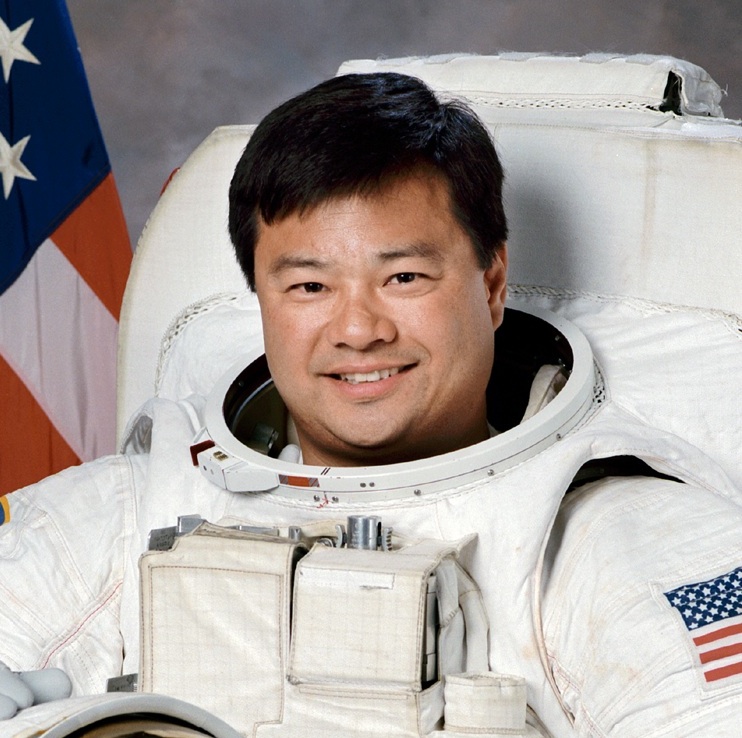
The Mars Generation: Kicking the Can Down the Road

Dr. Leroy Chiao served as a NASA astronaut from 1990 to 2005. During his 15-year career, he flew four missions into space, three times on space shuttles and once as the co-pilot of a Russian Soyuz spacecraft to the International Space Station. On that flight, he served as the commander of Expedition 10, a six-and-a-half-month mission. Dr. Chiao has performed six spacewalks, in both U.S. and Russian spacesuits, and has logged nearly 230 days in space. You can read more of Chiao's Expert Voices Op-Eds and film reviews on his Space.com landing page. Chiao contributed this article to Space.com's Expert Voices: Op-Ed & Insights.
I vividly remember the Apollo 11 moon landing. I was 8 years old, watching the events unfold on a grainy black-and-white TV screen, when Eagle approached the surface of the moon — and then actually landed. That evening, I looked up at the moon, and it was exciting to realize that there were people actually up there, right at that moment. It was life-changing. My generation was going to be the "Mars Generation": Everyone was certain that by the 1990s, we would have established a moon base and ventured on to Mars. I was inspired. I made a plan, worked hard, and many years later, was fortunate enough to be selected to be a NASA astronaut myself. [See All of NASA's 'Mars Explorers Wanted' Posters (Slideshow)]
Moon/Mars in the 1990s was not to be. However, in 1989, after I had applied to NASA, President George Bush proposed a new plan that would return Americans to the moon and then land astronauts on Mars by 2019, the 50th anniversary of Apollo 11. He intended to put the money up for it too, proposing an amazing 24 percent increase in NASA's budget. It was an exciting time. The following year, when NASA selected me as a member of Astronaut Group 13, I dared to think that I just might get to Mars, or maybe at least have a shot at the moon! It didn't work out that way. I had a very rich flying career and have absolutely no complaints, but mine didn't turn out to be the Mars Generation. President Bush was unable to get the political and financial commitments for his vision.
In 2009, I was asked to be a member of the White House-appointed Review of U.S. Human Spaceflight Plans Committee. Led by aerospace legend Norm Augustine, our charter was to review then-current NASA plans and assemble options for the new administration, for a new space policy. We were trying to lay the groundwork for the Mars Generation and define high-level paths on how we might get there. Our central message was clear: In the first paragraphs of the report, we emphasized that it was essential to match goals with resources.
So, it was with somewhat furrowed brow that I read President Obama's recent article on the state of the space program. Everything he wrote is factually true. And, when I go talk to young school children, I do tell them that maybe they will be the Mars Generation. But the difference is that I don't tell them that they are the Mars Generation today, as he did.
The reason I don't is that since the early 1970s, we seem to always be about 20 years away from landing astronauts on Mars. The President reiterated that projection, writing that he set the goal to get there in the 2030s. But an actual Mars program is missing; while it is true that NASA has received small increases in its budget and technological progress is being made, the funding and political resource commitments do not match the goal of landing humans on Mars in the 2030s.
I enthusiastically agree with the President that our space program inspires the next generation, just like it did for our generation. And over the years, NASA has made progress and mounted spectacular missions, such as the New Horizons probe that flew by Pluto last year. But for us to get humans to Mars anywhere close to the 2030s, the next administration must plan and announce such a bold program, and make the necessary commitments to see it through. Otherwise, we will simply continue to kick the can down the road, as we have been doing for way too long. In that case, instead of today's hopefuls, the Mars Generation will continue to be the one that's about twenty years in the future.
Breaking space news, the latest updates on rocket launches, skywatching events and more!
Follow us @Spacedotcom, Facebook and Google+. Original article on Space.com.

Leroy Chiao is a former NASA astronaut and International Space Station (ISS) commander. Chiao holds appointments at Rice University and the Baylor College of Medicine. Chiao has worked extensively in both government and commercial space programs, and has held leadership positions in commercial ventures and NASA. Chiao is a fellow of the Explorers Club, and a member of the International Academy of Astronautics and the Committee of 100. Chiao also serves in various capacities to further space education. In his 15 years with NASA, Chiao logged more than 229 days in space, more than 36 hours spent in Extra-Vehicular Activity (spacewalks). From June to September 2009, he served as a member of the White House appointed Review of U.S. Human Spaceflight Plans Committee, and currently serves on the NASA Advisory Council. Chiao studied chemical engineering at the University of California, Berkeley, earning a Bachelor of Science degree in 1983. He continued his studies at the University of California at Santa Barbara, earning his Master of Science and Doctor of Philosophy degrees in 1985 and 1987. Prior to joining NASA in 1990, he worked as a research engineer at Hexcel Corp. and then at the U.S. Department of Energy's Lawrence Livermore National Lab. Dr. Chiao left NASA in December, 2005 following a 15-year career with the agency. Chiao studied chemical engineering at the University of California, Berkeley, earning a Bachelor of Science degree in 1983. He continued his studies at the University of California at Santa Barbara, earning his Master of Science and Doctor of Philosophy degrees in 1985 and 1987. Prior to joining NASA in 1990, he worked as a research engineer at Hexcel Corp. and then at the U.S. Department of Energy's Lawrence Livermore National Lab.
